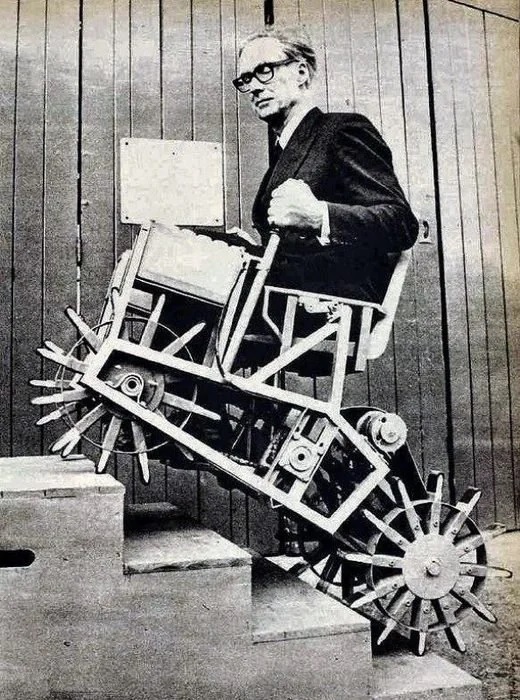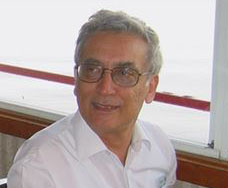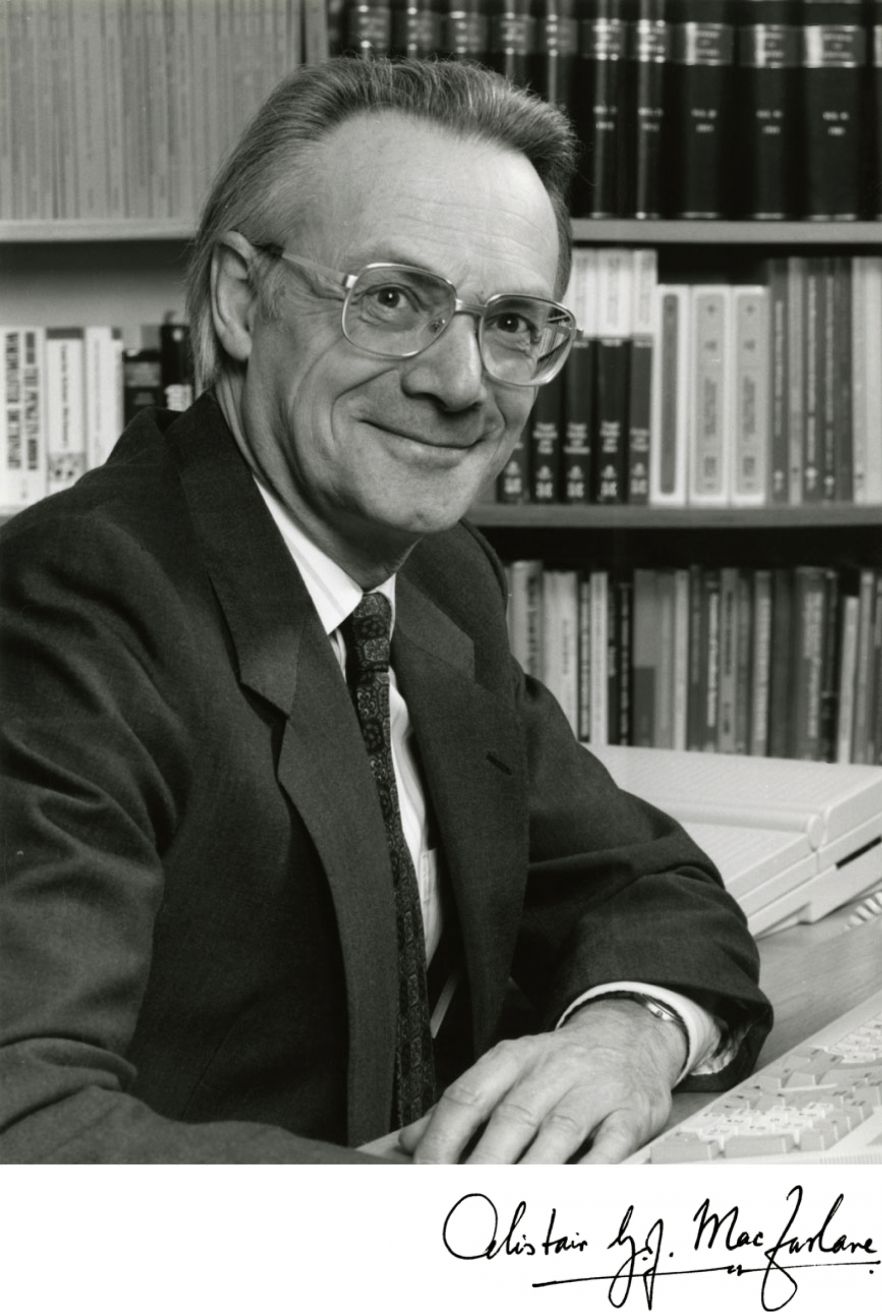Robotics60: In Memory of...
Prof Meredith Thring

Prof Meredith Thring (1915-2006) was one of the first professors of robotics at a UK university when he became Head of Mechanical Engineering at Queen Mary in 1964.
One of his most famous inventions was the stair-climbing chair which he began at Sheffield University and developed at Queen Mary. A significant step in assistive technology for people with access requirements, it garnered quite a bit of attention, including filming for TV and documentaries.
During his time at Queen Mary he also developed robotics for fire fighting and household chores.
He was ahead of his time in advocating for a sustainable approach to engineering and materials use. In his 1977 book 'How to Invent' he wrote: "one can envisage a society in which man lives in near-equilibrium with his environment, with the minimum use of raw materials by fuel economy, complete recycling of all metals, no throw-away goods, all consumer goods built to last many decades, and near zero pollution."
Frank Fitzgerald, writing in the Guardian, called him "a man ahead of his time: a far-sighted engineer, whose underlying theme was of responsible and sustainable design for humanity's well-being... and he was a respected teacher, with many of his former students attaining eminence in British and overseas industry."
Prof Abe Mamdani

Prof Ebrahim H. Mamdani (1942-2010), known as Abe, studied in Tanzania and India before moving to the UK in 1966, where he completed a PhD at Queen Mary. He took a position in Electrical Engineering, working here for almost 30 years when he moved to Imperial College in 1995.
His work focussed on machine intelligence, and he is best known for ‘Mamdani-Type Fuzzy Inference’ – the most well-known fuzzy system. It was at Queen Mary that he developed the first ever fuzzy controller.
“The world’s fuzzy community did lose one of its most distinguished members, the one to whom all of us are mainly indebted for introducing the first ideas on fuzzy control as an engineering discipline.” Wrote Luis Magdalena and Enric Trillas in a memorial piece in Science Direct, “we will always remember his joy for life, his passion for technology, science, philosophy and his interesting ideas on the relevance of establishing links between reasoning and digital computers.”
Prof Alistair McFarlane

Prof Sir Alistair McFarlane (1931-2021) worked at Queen Mary University of London from 1959 until 1965. In his final year he become Reader in Electronic Engineering and developed new concepts in engineering control, processing and dynamic systems – influencing robotics engineering for the future.
“He was a visionary leader. Alistair was also a very supportive and encouraging PhD supervisor, who liked to see students going 'off-piste' in pursuit of their own ideas," wrote Professor Jan Maciejowski and Professor Keith Glover in their memoir of him for the Royal Society.

